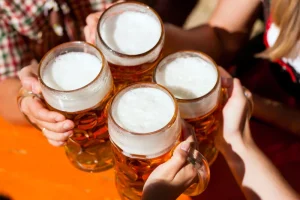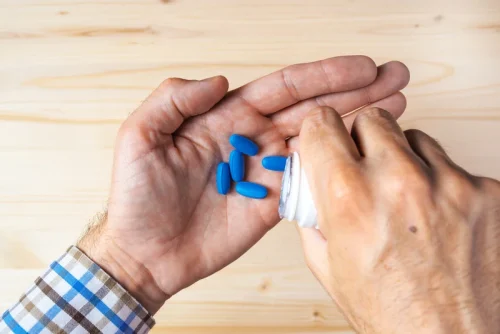
But what happens if, after being sober, someone starts drinking again? An alcohol relapse means you go back to drinking regularly after having a period of sobriety without the use of alcohol. A missing piece of the puzzle for many clients is understanding the difference between selfishness and self-care. Clinical experience has shown that addicted individuals typically take less than they need, and, as a result, they become exhausted or resentful and turn to their addiction to relax or escape. Part of challenging addictive thinking is to encourage clients to see that they cannot be good to others if they are first not good to themselves. Probably the most common misinterpretation of complete honesty is when individuals feel they must be honest about what is wrong with other people.
How is alcohol withdrawal managed?

This activity provides 0.75 CME/CE credits for physicians, physician assistants, nurses, pharmacists, and psychologists, as well as other healthcare professionals whose licensing boards accept APA or AMA credits. More resources for a variety of healthcare professionals can be found in the Additional Links for Patient Care. Here, we briefly share the basics about AUD, from risk to diagnosis to recovery. This article introduces a number of AUD topics that link to other Core articles for more detail.
- 1) Clients often want to put their addiction behind them and forget that they ever had an addiction.
- It is important to know that relapse does not represent a moral weakness.
- While it is a common part of the recovery process, it can lead to dangerous behaviors that may harm both the relapsing individual and their loved ones.
- If it happens, it is important that you get back up, dust yourself off, and get back on the path to recovery.
- Sticking with treatment for the entire length of the program is important, too.
How do the best treatment programs help patients recover from addiction?
If you start to overdose, naloxone can reverse an opioid overdose when someone gives it to you in time. Make sure the people closest to you know where to find it and how to use it. A healthy brain releases chemicals that give you pleasure when you do something rewarding, like exercising or meeting up with your friends. As you become addicted, your brain demands more and more of the drug to get that same feeling. In fact, at some point, if you don’t use the substance, you may feel worse.

Watch Articles
This is of particular concern when you’re taking certain medications that also depress the brain’s function. Because denial is common, you may feel like you don’t have a problem with drinking. You might not https://ecosoberhouse.com/ recognize how much you drink or how many problems in your life are related to alcohol use. Listen to relatives, friends or co-workers when they ask you to examine your drinking habits or to seek help.
- This may vary from person to person and be influenced by things such as extent and length of use.
- You can discuss trigger situations with your therapist and rehearse strategies to deal with them.
- Evaluate the coverage in your health insurance plan to determine how much of the costs your insurance will cover and how much you will have to pay.
Groups for Family and Friends
And it robs people of the energy needed to rebuild their life. The causes of substance dependence are rarely obvious to users themselves. Addiction recovery is most of all a process of learning about oneself.

Discussing the relapse can yield valuable advice on how to continue recovery without succumbing to the counterproductive feelings of shame or self-pity. Positive moods can create the danger of relapse, especially Alcohol Relapse among youth. Research identifying relapse patterns in adolescents recovering from addiction shows they are especially vulnerable in social settings when they trying to enhance a positive emotional state.
- Taking quick action can ensure that relapse is a part of recovery, not a detour from it.
- Some events or experiences can be avoided with a polite excuse.
- Clinicians can distinguish mental relapse from occasional thoughts of using by monitoring a client’s behavior longitudinally.
- Caring for a person who has problems with alcohol can be very stressful.
What Are the Warning Signs of an Alcohol Relapse?
Combining therapy with support groups can greatly improve your odds of success. The mental challenge of this stage is not to let anything make you feel defeated. Above all, see a relapse as a temporary setback and not a moral failure. A common question about honesty is how honest should a person be when dealing with past lies. The general answer is that honesty is always preferable, except where it may harm others [14,21].
As the loved one of someone in recovery, there are ways you can help preserve their recovery and prevent a relapse. Ultimately, receiving treatment can improve your chances of success. If you’re thinking about suicide, are worried about a friend or loved one, or would like emotional support, the Lifeline network is available 24/7 across the United States. Overcoming AUD is an ongoing process—one that can include setbacks.

Abstinence Stage

If someone knows their triggers, they can better avoid them and reduce their risk of a relapse. Clinicians can distinguish mental relapse from occasional thoughts of using by monitoring a client’s behavior longitudinally. Warning signs are when thoughts of using change in character and become more insistent or increase in frequency. How does the program or provider handle a return to drinking?

Commenti recenti